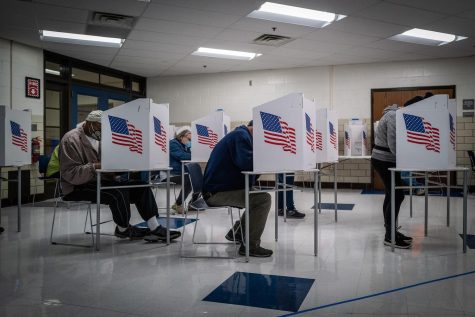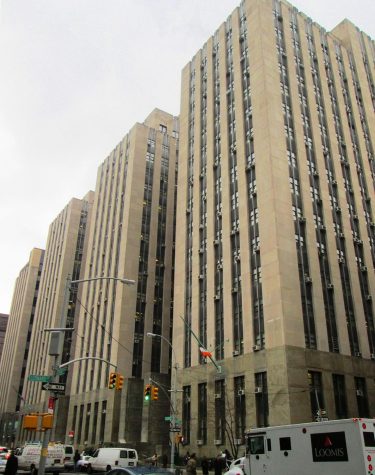University must expand COVID-19 testing this spring
Additional random testing must be implemented to ensure a safe second semester
December 6, 2020
Even with the majority of students back at home, multiple Wake Forest football and basketball games have been postponed “due to COVID-19 issues on campus.” It seems like the main problem isn’t the number of students present, but that the university’s mishandling of the pandemic this semester is continuing.
Now I know I am writing this as one of few who was actually able to stay on my North Carolina college campus the entire semester, and for that, I should be grateful. Which I am. I commend the students, dining hall staff, custodians, campus police, faculty, contract workers and anyone else who contributed to us being able to live on campus for the past three months. Thank you.
There were many times it seemed that we were on our way back home with no clear support from the university administration. Six-hundred-thirty-eight individual COVID-19 cases, including two outbreaks, the status change from Yellow to Orange and the need for a second quarantine location all seemed like the nail in the coffin for this semester. Yet we persisted. The issue lies here, however. All of these “wake-up calls” could have been avoided, and it seems as if administrators continued to hit snooze.
Spring semester must start off with absolutely zero cases for there to be a chance at lower numbers and less stress for students. The university tried to address this, realizing how vital it would be for the fall semester, by forcing students to purchase a $140 uninsurable mail-in spit test two weeks before even getting to campus. Not only was this a blindsided demand, but an extremely questionable one. What use are 5,000 negative spit tests (one of the least reliable tests) two weeks before transcontinental and international travel where countless contact is made with strangers. When we return to campus in late January, after two months of family gatherings and vacations, it will be even more crucial that Wake Forest implement on-site testing for returning students. In addition to verification that each student is cleared to travel to Winston-Salem, whether that be records of a nasal COVID-19 test that some students can get for free at their local testing center or a cheaper and more reliable mail-in test. Regardless, the university must announce these plans more than two weeks before they expect test results, so students and families can prepare for payment and overall logistics.
Another issue was the lack of random tests administered throughout the semester. Only one time did the university test more than 1,000 students in a week, the week after the second outbreak. Promptly afterward, testing returned to the usual 500-700 weekly tests, a difference in about 10% of the student body. The university clearly has the means to run more tests but chooses not to for some reason. President Donald Trump wasn’t right when he said that more tests are what increase positive cases. You know that, right? If you want to avoid testing every single student, every single week, like Vanderbilt (another black-and-gold private institution with the cost of attendance hovering around $75k) because you just need a sample to determine the course of action; increase the sample size. You have shown you can test 1,000+ students in a week, so why don’t you consistently do it?
Basketball season started last week and has now stopped, but when I saw the email notifying me to buy my virtual ticket before they sold out, I was curious to see how much they were charging. This is when I first heard of “Sustain the Deacs,” which is what all the ticket money was going towards. I looked into it and found out it is a crowdfunding campaign that supports the purchasing of PPE, testing, contact tracing and additional wellbeing staffing for Wake Forest’s student-athletes to continue training and competing for the year. As members of campus who travel and interact with others off-campus quite often, their health and safety are of utmost importance. However, as we have learned this past week with cancellations of the Duke, Miami and Notre Dame football games and the basketball game against Troy, only testing the athletes is not the way to ensure a season for them.
If the university wants to showcase how much our athletics have improved, there must be games and matches. We have seen this will not be able to happen if the university continues with its current COVID-19 testing protocol. ‘Pro Humanitate’ starts at the Wake Forest campus and must be shown by the heads of the university. And implementing a more widespread COVID-19 prevention plan to protect the Wake Forest campus, Winston-Salem, and the rest of Forsyth County sounds pretty bonum pro humanitate.






















